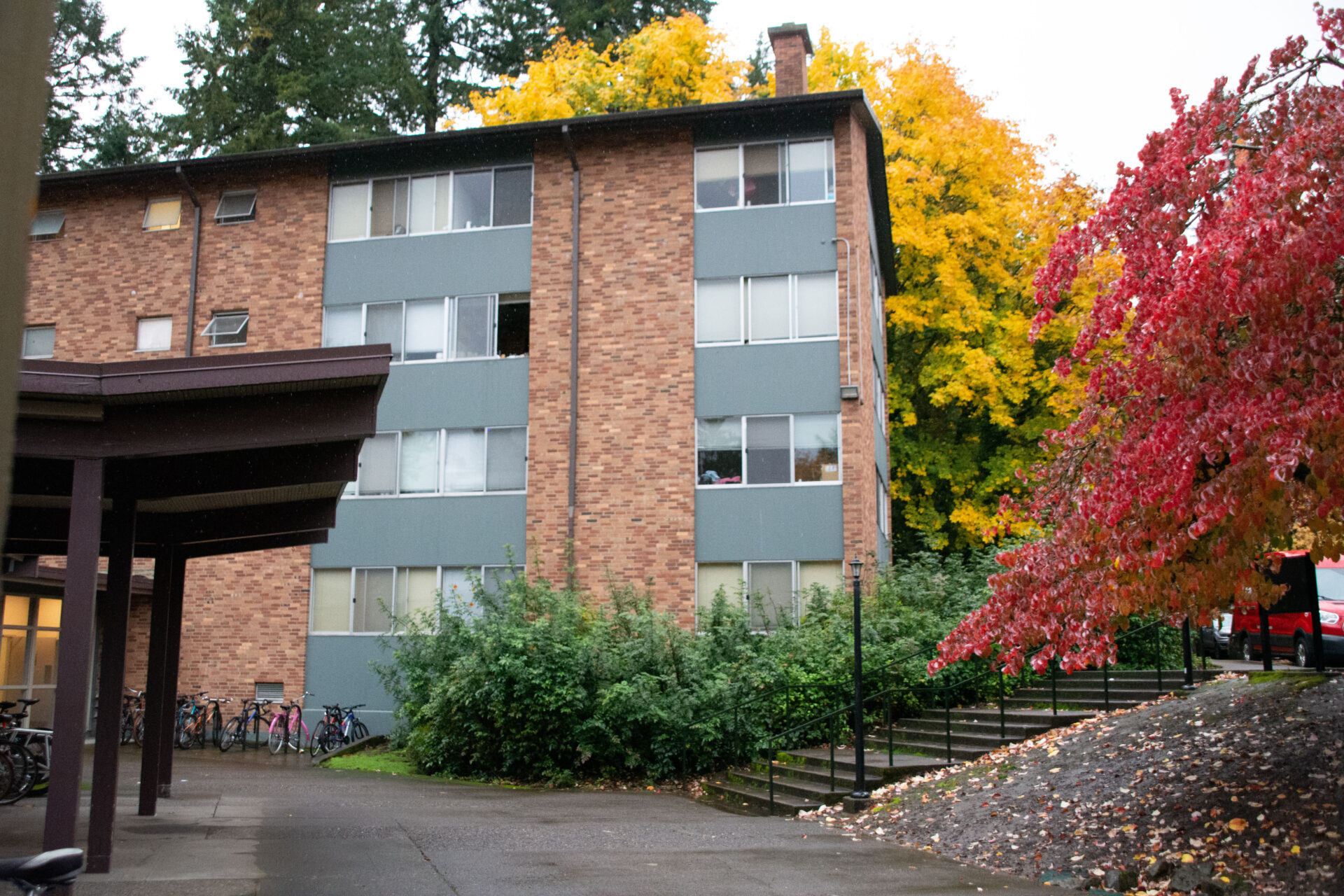
When it comes to something as personal as the space in which one lives, we all have different needs. While the typical college dorm lifestyle is detrimental to me and many others, it can also be enriching, especially for new students who need to familiarize themselves with their surroundings and community. The very nature of having students with different sets of needs at Lewis & Clark means that the students should be trusted to choose the option that works best for them.
This past summer, the Office of Campus Living provided students with the ability to apply to be released from the school’s two-year on-campus living requirement. I took this option. Finally, I thought, LC proves that it can make decisions for the benefit of students, or at least give us some agency.
It was only after the semester started that I understood the real reasons behind this offer: Dorms were full, and squishing the gigantic freshman class into dorms required a creative reallocation of space. The incoming class posed a unique circumstance.
It angered me that this seemed like the only reason the school was altering this requirement, and I started imagining what it would be like if LC regularly gave students the authority to do something as important as decide their living space.
During my freshman year, I lived in upper Odell Hall before leaving in the spring of 2020 due to COVID-19. My pre-COVID frustrations were mostly based on food; most meal options on campus tore apart my sensitive stomach, and as a neurodivergent person with sensory issues regarding food, I had to fight to get my daily calories in.
By the end of the year my living requirement was only halfway fulfilled. I was sure that I would be back, though; I was set to be a Resident Advisor (RA) for the 2020-21 school year.
That fall, I was on campus for less than a week and was already overwhelmed. Zoom RA training was exhausting and impersonal and the dining hall’s takeout system left me hungrier and more sick than the past year. What made me quit was the fact that during training, everyone seemed upset and angry (including me), and it sounded like Campus Living staff were expected to be the front-line enforcers of pandemic precautions. I drove back to California before the semester even started.
To distract myself from how lonely my Zoom-class-filled world was, I got a job and then a cat, whom I named Applesauce. Taking care of a sweet creature that loves me greatly helped my mental condition and gave me motivation to seek treatment for my chronic pain. I took a leave of absence in Spring 2021 and dreaded the idea of moving Applesauce into a dorm where I could not cater to our needs as freely. He was not yet certified as an Emotional Support Animal, and this process proved to be a series of hurdles I did not have the energy for due to the very disabilities that led me to rely on him.
I started wondering if any other students were in my situation. Pets are fairly simple — what if someone needed to care for a child or family member? Above all, we are still in a pandemic. Why has the school not lifted this requirement to allow students to seek their own, safer housing?
The cheapest on-campus housing option is a standard double, triple or quad dorm, with a semester rate of $3,935. Rounding a semester to four months, this equates to around $984 each month to live in a small room with one to three other people, with a shared bathroom and kitchen. This price does not include a meal plan.
Living in an off-campus apartment is a better option for me, even though it means I also have to buy and make my own food and pay for gas and utilities. For me, this is worth it. The base rent costs far less than it does on campus, I live in a less isolated area, my cat has a whole living room to run around in and I am in complete control of my diet. However, not everyone has a car or even a driver’s license, and some find the convenience of on-campus food to be just what they need. Dorm living also provides a sense of community that is a unique aspect of college life.
The point is that LC students are not a cohesive group. It is reprehensible that LC kept its on-campus living requirement in the 2020-21 school year, leaving immunocompromised students to beg for alternative situations and on-campus students to isolate in what should be a communal living environment.
Why has LC only given the choice to opt out of the housing requirement now? Is it due to the large influx of freshmen this year, meaning this is just another money grab that is so typical of LC? Or is LC’s administration seriously considering giving legal adults the basic right to choose their own living situation? I sincerely hope it is the latter. All I know is what works for me and what keeps me alive. From my darling cat Applesauce and I: You deserve the freedom to decide where you rest your head, and I hope the space you live in is one that keeps you sane.
Subscribe to the Mossy Log Newsletter
Stay up to date with the goings-on at Lewis & Clark! Get the top stories or your favorite section delivered to your inbox whenever we release a new issue.

Leave a Reply